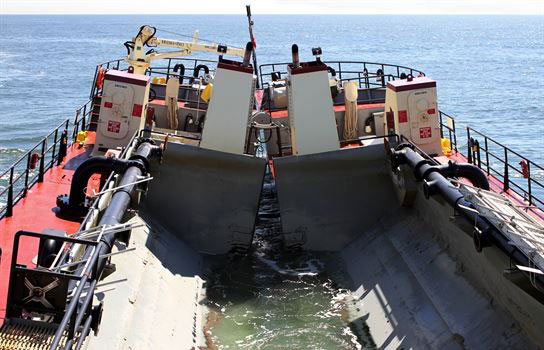The Army Corps of Engineers is responsible for dredging sediment from waterways to maintain shipping routes important for commerce.
Hopper dredges perform much of the dredging in ports and harbors, and the Corps uses its own fleet of hopper dredges and also contracts with industry to carry out the work. In 2003, the Government Accountability Office examined the Corps’ hopper dredging program and made recommendations to improve its management.
In response to GAO’s 2003 recommendation to obtain and analyze data needed to determine the appropriate use of its hopper dredge fleet, the Corps established a tracking log to document urgent or emergency work its dredges carry out. The Corps also modified its dredging database to track solicitations for industry contracts that received no bids and bids that exceeded the Corps’ cost estimate by more than 25 percent. However, a GAO report released last month found that Corps district offices do not consistently enter data on these solicitations, and Corps headquarters has not provided written direction to the district offices to ensure data are consistently entered.
The GAO report recommends that the Corps provide written direction to its district offices on consistently populating its database with no-bid and high-bid solicitations and develop a written plan for a study to obtain and periodically update certain hopper dredging cost data for its cost estimates. The Department of Defense concurred with the recommendations.
The report also found that statutory restrictions on the use of the Corps’ hopper dredges since 2003 have resulted in costs to the Corps. However, the effect on competition in the hopper dredging industry is unclear. Restrictions limiting the number of days that Corps dredges can work have resulted in additional costs such as added expenses to maintain certain Corps dredges while idled. However, the restrictions help ensure the Corps has the ability to use these dredges to respond to urgent or emergency dredging needs when industry dredges are unavailable.
It is not clear to what extent restrictions have affected competition in the dredging industry, the GAO concluded. The number of U.S. companies with hopper dredges has not changed since 2003, but the number and size of these dredges have decreased. In addition, the GAO did not find evidence of increased competition based on the number of bidders and winning bid prices for Corps hopper dredging projects since 2003.




